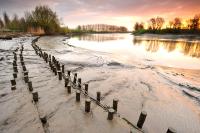
Sigma plan
Sigma Plan is working to allow the River Scheldt River in Belgium to overflow in a controlled way and reconnect with the land, creating a chain of wetlands that benefit local communities and biodiversity.
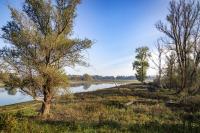
Millingerwaard
Millingerwaard is a pioneering and showcase rewilding initiative in the Netherlands. Starting in the early 90s, Millingerwaard's waterways were restructured so that floodplains were once again able to play their natural role in flood protection. Clay mining became a new economic driver, partially replacing agriculture. Newly excavated channels contributed to the ecological restoration of the riverine landscape, enhancing flood prevention capacity, water quality, and biodiversity. Today, the 600-hectare site is ecologically and economically transformed, demonstrating perfectly how both people and wild nature can benefit when natural processes are given free rein to reshape rivers.
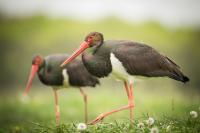
Grote Netewoud
Grote Netewoud is a rewilding initiative in the heart of Belgium - one of Europe's most densely populated countries. Here, the largest Belgian nature organisation Natuurpunt is restoring the natural flow of water in the Grote Nete River to allow the return of alluvial forest.
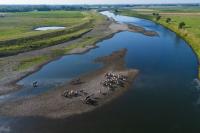
Border Meuse
The Border Meuse or "Grensmaas" initiative began 30 years ago and is the largest initiative of its kind in the Netherlands and Europe. Rewilding a 45-kilometre stretch of the Meuse River on the border between the Netherlands and Belgium has delivered on three major fronts: reduced flood risk, healthier and more diverse nature, and the commercial benefit of both gravel extraction and nature-based economic development.
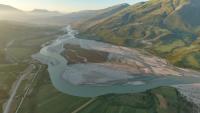
Save the Blue Heart of Europe
The Vjosa River in Albania is one of the last wild river ecosystems in Europe. The Save the Blue Heart of Europe – Albania initiative, which is overseen by the NGO EcoAlbania, is working to protect biodiversity along Albania’s Vjosa River by stopping plans for hydropower development, establishing a transboundary national park, and promoting sustainable, socio-economic development.
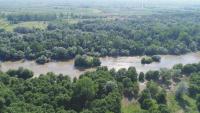
LIFE PRIMED
The EU-funded LIFE PRIMED initiative is focused on the rewilding and restoration of the Palo Laziale wood in central Italy, and the delta of the Nestos River in Greece - both of these are Natura 2000 sites.
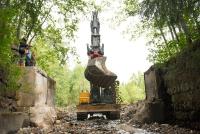
Rewilding Lankälven
The Rewilding Lankälven initiative is working to rewild the River Lankälven in the centre of Sweden, with a focus on restoring the river’s brown trout and freshwater pearl mussel populations.
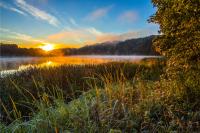
Nemunas Delta
The Nemunas Delta initiative in Lithuania is working closely with local residents to encourage environmentally friendly practices such as natural water level control, increase the local aquatic warbler population, and develop nature-based tourism.
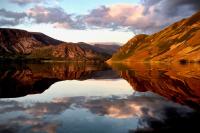
Wild Ennerdale
The Wild Ennerdale initiative in the UK's Ennerdale Valley is allowing the landscape to evolve naturally with decreasing human intervention. The initiative acts as a showcase for promoting natural river hydrology, with the River Liza, which flows through the valley, representing one of England’s most naturally dynamic river systems.
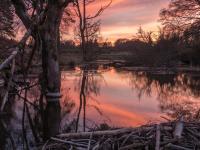
Bamff Wildland
Bamff Wildland is a rewilding initiative located on an upland Scottish estate. Restoration efforts began here in the early 1990s with the recreation of wetlands and planting of native woodlands, while the first beavers were introduced to Bamff in 2002. Today, a thriving population of these eco-engineers has transformed the estate's landscape by creating a large, biodiversity-rich complex of waterways, wetlands, and pools.
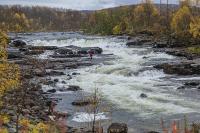
Näätämö Basin
Finnish NGO Snowchange is working to rewild a growing number of river, peatlands, and forests. The NGO's co-management efforts in the Näätämö Basin began in 2011, when the Skolt Sámi and Snowchange began research and rewilding interventions to combat the negative impacts of climate change, in collaboration with the Kven minority in Norway. Spawning areas were restored on the Kirakkakoski and Vainosjoki Rivers, which both flow into the Näätämö.
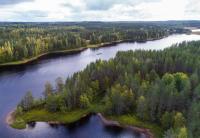
Koitajoki Basin
The Koitajoki Basin covers 6500 square-kilometres in eastern Finland. Since 2020, Finnish NGO Snowchange has been leading efforts to restore this large boreal river - and to stimulate a resurgence in traditional knowledge, oral histories, and local governance in riverside villages - with support from the UK-based Gaia Foundation.